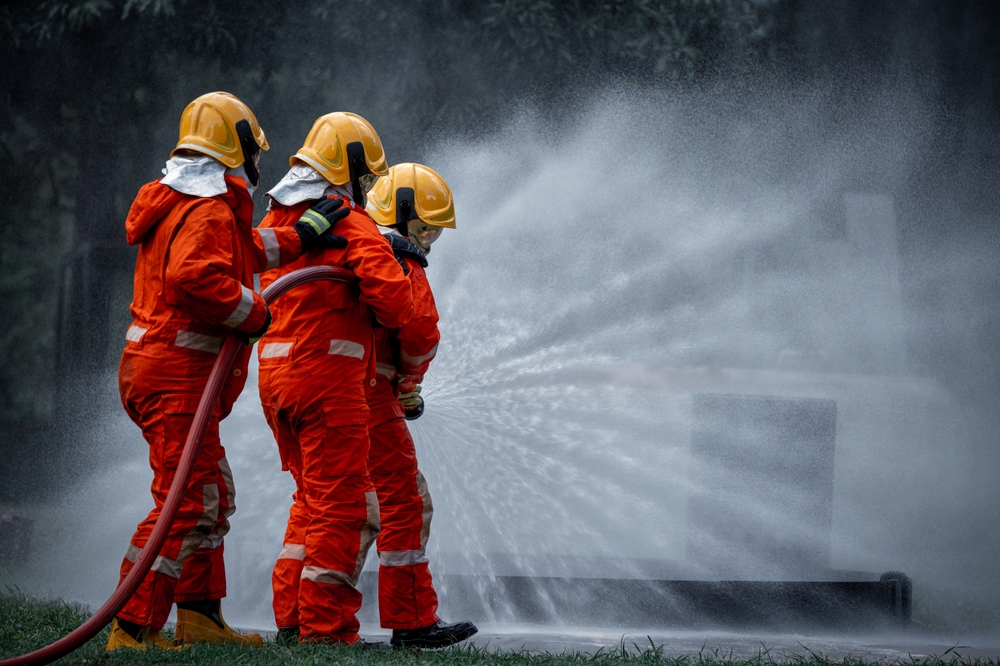

Picture this. You’ve returned home after a long day, only to find your property engulfed in flames. The devastation is overwhelming, and one thought looms large amidst the chaos – how will you recover from this catastrophe?
Understanding the intricacies of fire insurance claims is crucial for Welsh homeowners and business owners. A well-handled claim can distinguish between a swift recovery and prolonged distress.
We will guide you through the essentials of fire insurance claims in Wales, providing you with the knowledge needed to tackle this process confidently.
Dealing with fire insurance claims in Wales can be overwhelming, but understanding the process is essential for a successful recovery.
Fires commonly result from:
Prevention measures like regular electrical maintenance, installing smoke detectors, and using fire-resistant materials are vital to reducing risks.
Navigating Fire Insurance: Fire insurance typically covers structural damage, personal belongings, and temporary accommodation but has limits and exclusions, such as negligence or intentional acts. Familiarity with your policy ensures clarity during claims. After a fire, safety is paramount, followed by notifying your insurer, documenting damage, and securing the property.
Filing and Managing Claims: The claims process involves submitting evidence, cooperating with adjusters, and understanding coverage limits. Independent repair estimates and thorough records can help ensure fair assessments. Delays often arise from disputes, incomplete documentation, or high claim volumes, but proactive communication with your insurer can expedite the process.
Maximising Payouts: Detailed records, a solid understanding of your policy, and the support of public adjusters for complex cases can improve claim outcomes. Loss assessors work on behalf of the claimant, ensuring fair settlements. Case studies reveal lessons, highlighting the importance of avoiding pitfalls like disputes over damage estimates or unexpected policy exclusions.
Conclusion: Preparation and prevention are key. Regularly review your policy, adopt fire safety measures, and stay informed about the claims process to protect your property and ensure efficient recovery during a fire.
Wales has seen its fair share of fire incidents, ranging from minor blazes to significant infernos. Understanding the common causes can help in prevention and preparedness.
Faulty wiring and overloaded circuits are frequent culprits. Regular electrical inspections can mitigate these risks significantly.
Unattended cooking, particularly involving frying pans, often leads to kitchen fires. Always supervise your cooking and turn off appliances when not in use.
Space heaters, fireplaces, and outdated heating systems pose substantial fire risks. Ensure your equipment is well-maintained and used responsibly.
Intentional fires are, unfortunately, a reality. Adequate security measures can deter such acts.
Natural causes like lightning can spark fires, especially in rural areas. Installing lightning rods can reduce this risk.
Navigating fire insurance policies can be daunting, but a clear understanding is vital for effective coverage.
Fire insurance typically covers damage to the building structure, personal belongings, and sometimes the cost of temporary accommodation. Always review your policy details to know what’s included.
Each policy has its limits and exclusions. Some personal properties might not be covered, and negligence or intentional fires are usually excluded. Knowing these details helps manage expectations during a claim.
Some policies offer additional coverage for fire department charges and replacement costs. Ensure you’re aware of these benefits.
Immediate action can make a significant difference in the aftermath of a fire.
First and foremost, ensure your safety and that of others. Evacuate the premises and contact emergency services.
Promptly notify your insurer about the incident. This initiates the claim process.
Take photographs and make detailed notes of all damages. This documentation will be crucial for your claim.
Board up windows and doors to protect against further damage or theft. This step can also prevent disputes with your insurer about additional damage.
What Oakleafe Clients Say:

Filing a claim involves several steps, each crucial for a successful outcome.
Begin by contacting your insurer and informing them about the fire. They will guide you on the next steps.
Complete the necessary claim forms accurately. Any errors can delay the process.
Submit your documented evidence, including photographs and itemised lists of damaged property.
Your insurer will send an adjuster to assess the damage. Cooperate fully and provide any additional information they require.
Insurance adjusters play a pivotal role in the claims process.
The adjuster will inspect the property to assess the extent of the damage. Be prepared to show them around and answer questions.
They will estimate the repair costs based on their inspection. It’s beneficial to have independent repair estimates for comparison.
The adjuster will determine the validity of the claim based on policy terms. Understanding your policy helps in this phase.
Knowing what your policy covers and excludes is essential.
Policies have payout caps. Knowing these limits helps set realistic expectations.
Certain damages may be excluded, such as those resulting from negligence. Familiarise yourself with these exclusions.
Understanding these details can help you better prepare and present your claim, avoiding surprises.

The timeline for settling a claim varies.
The process can take several weeks to months, from filing the claim to receiving the payout.
Disputes over damage assessments, incomplete documentation, and high claim volumes can cause delays.
Ensuring thorough documentation and prompt responses to adjuster inquiries can expedite the process.
Maximising your payout requires strategic actions.
Maintain detailed records of all communications and transactions related to your claim.
Building a cooperative relationship with the adjuster can lead to a fairer assessment.
Knowing your policy inside out helps you argue for entitlements effectively.
Independent estimates can validate the adjuster’s figures, ensuring fairness.
Loss assessors can be invaluable in navigating complex claims.
A loss assessor works for you, not the insurer, ensuring your interests are prioritised.
Their expertise in negotiations can result in higher settlements.
Consider hiring a public adjuster for large or complicated claims where potential increased payouts justify their fee.

Real-life examples illustrate the claims process and outcomes.
Case studies of successful claims can provide valuable insights and tips.
Understanding why some claims are denied helps in avoiding similar pitfalls.
Each case study offers lessons on navigating the claims process more effectively.
Filing a claim isn’t always straightforward. Be prepared for challenges.
Disputes can arise over the extent and cost of damage. Documentation and independent estimates help resolve these.
Unexpected exclusions can lead to denied claims. Knowing your policy details mitigates this risk.
Processing delays can be frustrating. Regular follow-ups with your insurer can keep things moving.
Prevention is always better than cure.
Smoke detectors are a must-have for early fire detection.
Regular maintenance of electrical systems reduces the risk of fire.
Having a well-rehearsed fire escape plan ensures everyone’s safety during an emergency.
Fire-resistant materials can prevent the spread of fire, minimising damage.
Fire insurance claims in Wales can be complex, but you can manage the process efficiently with the right knowledge and preparation. Understanding your policy, knowing what to do immediately after a fire, and being aware of potential challenges are crucial. Remember, prevention is always the best strategy. Regularly review your insurance policies and take preventive measures to protect your property. Consider consulting a professional to help you through the claims process for further assistance. Stay prepared and stay safe.
Oakleafe Claims have represented policyholders and managed their insurance claims since before the First World War. We have vast expertise and experience in both domestic and commercial insurance claims with thousands of satisfied policyholders who have received their deserved insurance settlement. With no upfront fees required, our internal data shows that insurance claims managed by professional loss assessors like Oakleafe can expect a settlement up to 40% higher than claims managed by the policyholder.
What Oakleafe Clients Say:


